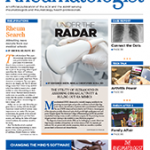Do your employees waste time during the day or get easily distracted by personal issues? In a rheumatology practice, time equals money and time theft can affect all aspects of the practice—from office morale to patient satisfaction. Here are a few tips for keeping employees and managers on track to create a more effective working environment…







